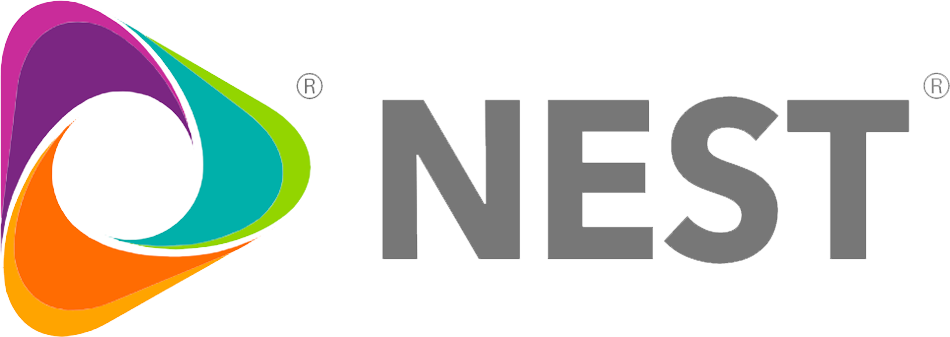 Exploring your IFM options? Take a look at NEST's innovative solution.
Exploring your IFM options? Take a look at NEST's innovative solution.
Integrated Facilities Management (IFM) is a holistic approach to facilities management (FM) in which the management of organization-wide systems and processes一and, typically, service providers一are centralized under a single outsourced, technology-focused platform.
IFM can increase operational efficiencies, drive savings, and leverage program data across a business to better meet organizational goals.
It’s an approach that can:
- Streamline Operational Processes
- Better Control Operating Costs
- Improve Overall Communication & Collaboration
- Enhance the Use of Technology to Leverage Actionable Insights
In short, IFM increases organizational agility and can help move businesses to a more robust strategic footing.
How Is Integrated Facilities Management (IFM) Different From Traditional FM?
FM functions as the backbone of any organization that operates out of a physical space. Its mandate typically includes any combination of building and grounds maintenance, systems, and infrastructure一even down to desk chairs and air freshener一that impacts employee productivity and the customer experience.
Over time, the cost of a traditional Facilities Management (FM) program has grown in lockstep with its increased complexity. For most multi-site organizations, FM is a top 10 expense一and common target for cost cutting. Many businesses have turned to outsourcing to reduce increasing FM expenses.
On the ground, this can quickly spiral into a logistical nightmare, with multiple service providers performing different tasks at different sites to different standards. This approach also buries opportunities for smarter resource allocation, cost savings, increased efficiencies, and better organizational collaboration.
IFM combats this counterproductive approach by enhancing program transparency and efficiencies with automated workflows, streamlined processes and procedures, comprehensive KPIs and analytics, and improved organizational decision making. And according to global management consulting firm McKinsey & Company, using an IFM partner can reduce FM costs by up to 15 percent.
Why Should My Organization Switch to Integrated Facilities Management (IFM) Approach?
Regardless of industry or function, shared data drives increased efficiencies, cost reduction, and progress in our interconnected world. IFM, then, is the premier solution in facilities management that can help your program achieve these goals with the following features:
 Industry-Leading Technology
Industry-Leading Technology
An IFM solution is grounded in customizable, industry-leading technology that not only streamlines workflows across your FM program but integrates with your existing business systems. A best-in-class, secure work order management system is the basis of the IFM technological infrastructure. It provides greater program transparency and captures asset history, program activity, spend, and more, and is available to clients, contractors, and IFM providers一with permission.
Program data can be leveraged quickly and in real-time by IT, budgeting, procurement, sales, marketing, and others to improve efficiencies, facilitate organizational communication, and inform short- and long-term decision making.
 Trusted Independent Service Providers (ISPs)
Trusted Independent Service Providers (ISPs)
When disaster strikes, you’ll need help, and you’ll need it quickly. An IFM solution will give you access to a national network of trusted, licensed ISPs who work wherever you operate your sites. Your IFM solutions provider will interface with each service provider to optimize workflows and manage the communication process so you can focus on other essential responsibilities.
 A Total Cost Approach
A Total Cost Approach
Traditional FM service providers are typically hired on a siloed basis, charge by the hour, and often levy trip and emergency callout fees. Instead, IFM uses a total cost approach, in which FM operations are addressed collectively, and interdependencies between equipment, processes, and people are identified to streamline workflows and reduce overall program costs.
For example, negotiated pricing (instead of hourly) and service level agreements (SLAs) for service providers enable enhanced coordination across sites, workflow improvements, and better maintenance scheduling. Operational inefficiencies related to ad-hoc service provider management can be identified and alleviated一resulting in real program savings.
IFM providers will guarantee different levels of savings based on the tactics and billing models they use, so before committing to a provider, ask how they achieve those numbers. Make sure they are using a holistic, cost-savings approach.
 Advanced Analytics
Advanced Analytics
IFM’s advanced analytics can help prevent some emergency events before they happen. By efficiently tracking individual assets according to model, age, service history, and more, you’ll better grasp problem areas, including how to mitigate the need for emergency repairs with preventive and predictive maintenance. While there are important differences between the two, they work to move your maintenance program from a mostly reactive function to one more strategic.
 Better Financial Management
Better Financial Management
With comprehensive insight into your FM finances, the right IFM provider will revolutionize the way you put together your budget. Some will even go the extra mile and work directly with you to craft a spending plan using historical program data to understand your stores’ budgetary requirements. They can help you plan for emergencies and budget accordingly after a significant event.
For example, the coronavirus pandemic-induced changes in service needs一often extensive and abrupt一have made the need for financial transparency and flexibility more important than ever.
 Consultative Support
Consultative Support
Software alone cannot deliver actual value to an FM program. Converting data into action requires human intelligence, and an IFM solution can bring skilled expertise to the table.
Moving from a siloed, legacy model to an integrated one can help facilities teams and senior leadership work more effectively to move the organization forward. It’s an approach that will have significant ripple effects across your business, leading to informed, data-driven decisions powered by insights from a provider that truly understands your business.
Is There a Downside to Adopting an Integrated Facilities Management (IFM) Solution?
 An IFM solution can revolutionize the role and practices of FM for multi-site organizations. Commonly referenced “downsides” about cost, implementation, or usage are actually misconceptions. For example:
An IFM solution can revolutionize the role and practices of FM for multi-site organizations. Commonly referenced “downsides” about cost, implementation, or usage are actually misconceptions. For example:
Is IFM too expensive? No. Legacy FM programs may cost less in the short term, but can’t provide the strategic benefits and comprehensive program savings一both now and in the future一that make a real difference to the bottom line. This is what an IFM program is designed to deliver.
Is an IFM too difficult to implement? No, not with the right partner. Sure, transitioning to an IFM program is a complicated undertaking, but with the proper support, the rollout can be efficient, and reasonably quick at about 90 days, without additional cost.
Will implementing an IFM solution always lead to job losses? No. With an IFM program in place, many FM professionals will find their relationships with their employers deepen with the introduction of IFM.
For more misconceptions about how an IFM solution works, take a look at “6 Integrated Facilities Management Myths Debunked.”
Track IFM Performance With These Key KPIs
An industry-leading IFM technology platform can provide comprehensive visibility into FM program operations and spend. This enables users to better track program performance with data that have organizational impact. Selected Key Performance Indicators (KPIs) cover:
 Work Order Management
Work Order Management
Track work order progress to view on-the-ground activity and day-to-day program health. This includes the total number of active, scheduled, and completed work orders, the average time to complete a work order, and backlog of deferred work orders.
 Scheduled Work Orders (Preventative Maintenance)
Scheduled Work Orders (Preventative Maintenance)
Preventive maintenance is less expensive than reactive maintenance, helps prevent equipment downtime and other emergencies, and enables your team to address issues proactively. Scheduled work orders, for example, are key preventative maintenance KPIs. They cover recurring tasks and can uncover seasonal or other trend data by category, location, or other filters.
 Asset Condition
Asset Condition
Asset breakdowns can be costly, time consuming, and disruptive to your business. Monitor the overall health of your assets with KPIs, such as reactive service requests by asset, time spent on reactive maintenance, and first trip percentage一the rate of reactive service requests resolved with a single service provider visit.
 Service Level Agreement (SLA) Compliance
Service Level Agreement (SLA) Compliance
Track service provider performance, such as timely completion of tasks, maintenance requests, and other work orders with SLAs prepared and maintained by your IFM provider.
 Financial Health
Financial Health
Understanding how your FM program impacts your organization’s bottom line is essential in making meaningful improvements. A quality IFM program enables you to compare budget versus actual spend, uncover cost reduction opportunities, and make budget adjustments in real time. Identify trends in YOY spend and across spend categories, and follow workflows with up-to-date work order status and service coverage.
See “15 KPIs to Measure Using Integrated Facilities Management Technology” for additional information on IFM KPIs.
How Integrated Facilities Management (IFM) Works Within Your Organization
So, what does an activated IFM program look like? It all starts when you engage your facilities team, gather asset and project data, and identify an IFM partner who can help you implement a customized plan. By consolidating your facilities and maintenance projects under one contract coordinated by one partner, your organization will feel the effects of the integrated approach almost immediately.
For example, if you’re a retailer running a national chain store, you’re probably familiar with this common problem: A major HVAC or plumbing failure creates an urgent—and expensive—maintenance need.
If you don’t have funds budgeted for this type of emergency一or, even if you do一it can put a strain on your ability to fund other projects you’d planned to tackle. Not only do you have an urgent need for reliable service providers, but you must also rapidly adjust your FM spend to account for this costly, unforeseen event.
Without an IFM solution in place, you’re likely to siphon funds from elsewhere in your budget, which shortchanges other important initiatives your facilities team will be forced to put on hold. In the interest of resolving the issue quickly, you might hire a service provider that hasn’t been adequately vetted, leading to potential problems, additional costs, or liabilities.
How Do I Choose an Integrated Facilities Management (IFM) Partner?
In a retail environment that is highly competitive and teeming with disruption, businesses can no longer afford to live by the outdated axiom, “If it ain't broke, don’t fix it.” Instead, executives should be asking, “What can we do differently tomorrow that we’re not doing today?”
The answers to this question can have significant implications on the future of the business, including the FM program. Whether you’re evaluating a current FM relationship or exploring new IFM partnerships, here are several questions you should ask:
"Do you include a robust technology platform that can be customized to my organization’s requirements?"
Your specific operational and management goals are unique, and you might require access to datasets and reports requiring customized dashboards一from the office or the field. Be sure to find out if your IFM partner can accommodate these requirements, whether you or your vendors will be charged for it, and whether those charges are one time or recurring.
"Do you provide analytics and data-driven insights about my entire FM program?"
Your IFM technology should have the ability to identify trends, capture savings, and increase operational efficiencies across your entire program. Moving beyond legacy systems to house IFM data in one easily accessible place is essential in facilitating organizational communication and acting more strategically on program insights.
With customized dashboards for all management levels, your employees will have the ability to execute work more effectively. For example, you may find that the same plumbing issue repeatedly occurs at the same location or new insights from analyzing your HVAC preventative maintenance protocols. Your IFM partner should have the resources and expertise to identify these situations and recommend meaningful improvements.
"Is there a team of industry subject matter experts familiar with my FM program requirements who can assist me with my requests?"
When calling with a request, you want to speak with someone aware of your organization’s requirements and your facilities’ needs. A quality IFM partner will provide access to a dedicated account team, not a customer service representative who doesn’t know your business or brand or doesn’t have a history of services.
"Do you provide access to a top-quality team of service providers?"
Your IFM solution should provide a network of vetted, high-qualified service providers regardless of where your sites are located. Service requirements should be detailed in SLAs and work reviewed by a quality assurance team. Service fees should be managed via a negotiated process at the IFM level, with no hourly, overtime, or emergency callout charges.
Finally, an optimized facilities management program is increasingly vital to the health of your brand and success of your business. Partnering with an IFM provider is a significant step in aligning your FM program with larger, organizational-level goals and helping to achieve them. Make sure your provider understands your business and adds strategic value to help move it forward.
Contact NEST today to learn more about our Integrated Facilities Management (IFM) solution and how we can advance your FM program to the next level to help transform your business for the future.
6 Ways Your Legacy FM Program is Costing You Money
What you don't know could be costing you. Download this free ebook to learn how outdated processes are costing you money, and what you can do to fix it.
Download Now


